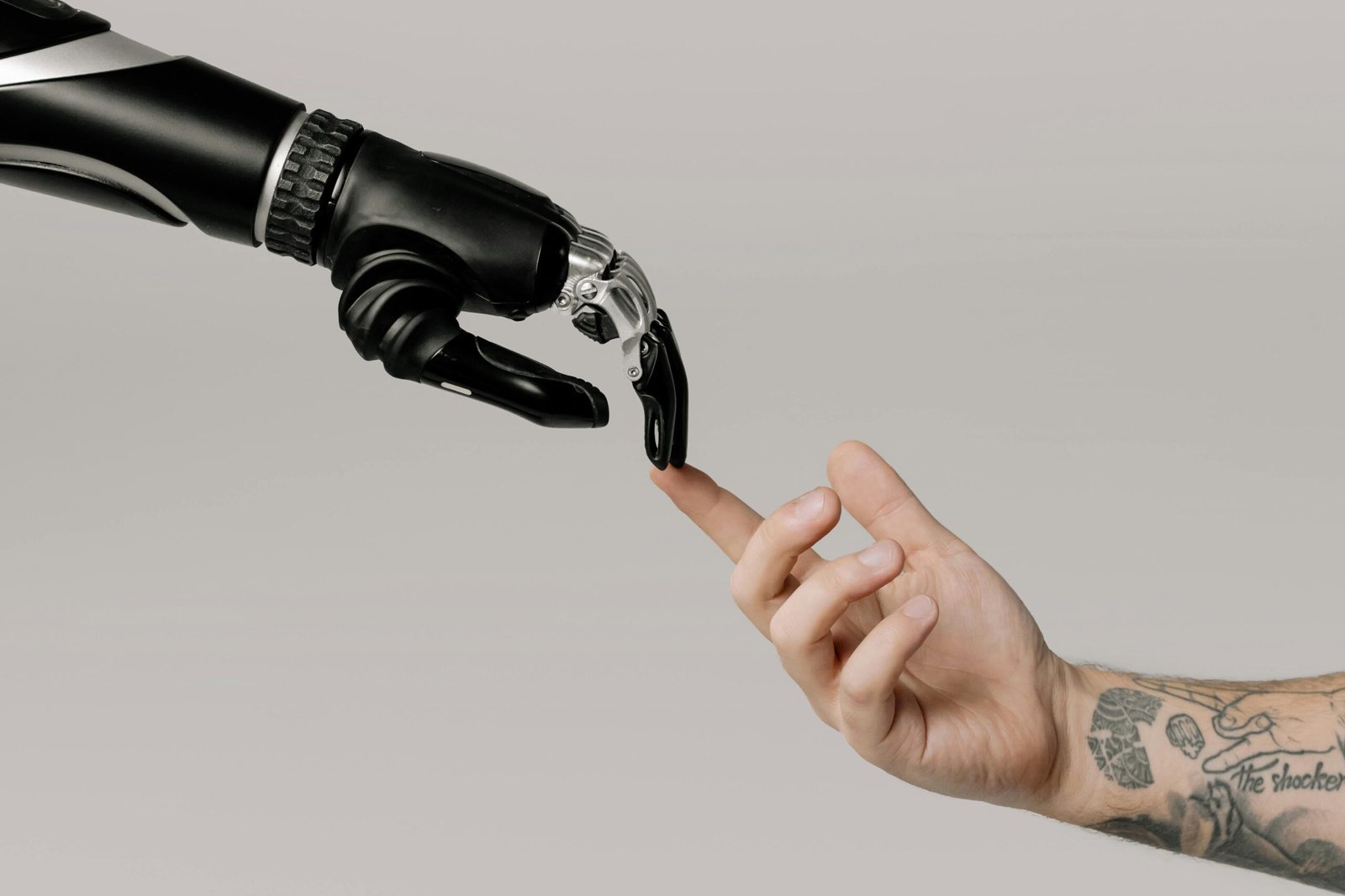How Artificial Intelligence (AI) is Transforming Marketing
Artificial Intelligence (AI) is no longer just a buzzword; it’s a powerful force driving change across industries, and marketing is no exception. From transforming personalization to optimizing automation and enhancing data analysis, AI is reshaping the way brands connect with their audiences. Let’s explore how AI is revolutionizing marketing, the challenges it brings, and its exciting future potential.
The Game-Changing Impact of AI in Marketing
1. Personalization at Scale
For marketers, putting the consumer at the center of strategies is essential, and AI is making this possible at an unprecedented scale. AI listens, learns, and predicts consumer behavior by analyzing patterns in customer data. It enables hyper-personalization, where brands can deliver tailored offers, product recommendations, and messages to individual customers in real-time.
Example: Retail platforms like Amazon use AI-powered algorithms to recommend products based on a user’s browsing and purchase history. Similarly, Spotify’s AI curates custom playlists by analyzing listening habits.
2. Automation for Efficiency
AI’s automation capabilities are streamlining marketing workflows and freeing up teams to focus on creative and strategic tasks. AI tools can handle repetitive tasks like email marketing, customer segmentation, and ad placement with incredible efficiency.
Example: Jasper, an AI writing tool, can draft personalized email campaigns or blog outlines in seconds, saving marketers hours of manual work. Chatbots like ChatGPT, meanwhile, provide 24/7 customer support by resolving queries and guiding users through purchase journeys with human-like conversations.
3. Data Analysis for Smarter Insights
AI offers advanced data-crunching capabilities that allow marketers to pull actionable insights from vast amounts of information. From tracking consumer behavior to analyzing campaign performance, AI simplifies decision-making and optimizes ROI.
Example: Google Analytics 4 incorporates machine learning to provide predictive metrics, such as the likelihood of purchase or churn, enabling marketers to act proactively.
4. Content Creation Revolution
The ability of AI to generate content is a game-changer. Tools like DALL-E generate stunning visuals based on text prompts, while ChatGPT can draft blogs, social media posts, or ad copy with ease. Marketers can use these tools to create engaging content without relying solely on traditional resources.
Example: A brand launching a new product could use DALL-E to design creative imagery for promotional materials, while ChatGPT develops a campaign slogan and Jasper crafts email outreach efforts.
Challenges of AI in Marketing
1. AI Fatigue
AI is an impressive tool, but over-relying on it or rushing to integrate every AI solution can lead to what’s known as AI fatigue. This challenge arises when marketers feel overwhelmed by the technology. It can also happen when AI automation creates more work instead of reducing it, as teams juggle learning and implementing new systems.
2. Ethical Pitfalls
As AI handles consumer data, ethical concerns, including privacy, accuracy, and misuse, are prominent. There’s also skepticism around AI-driven content, with studies showing that consumers are less engaged with AI-generated material when they realize it wasn’t created by humans.
3. Limited Creativity and Judgment
While AI can perform incredible tasks, it lacks the creativity and emotional intelligence that humans bring to the table. It works best for executing repetitive tasks and analyzing patterns but struggles with nuanced, strategic decision-making or creating content that truly resonates emotionally.
Tips for Effectively Using AI in Marketing
- Start Small
Experiment with one or two AI tools that align with your goals, such as an AI writing assistant for content creation or a chatbot for customer support. Test and learn from these before exploring other solutions. - Balance AI with Human Creativity
Successful marketing combines the power of AI tools with human intelligence. Use AI to handle data-heavy tasks or provide inspiration but refine and personalize the final output through human input. - Be Transparent
When utilizing AI for customer interactions, be upfront about its usage. Transparency fosters trust and avoids backlash when customers discover they’re engaging with bots, not humans. - Train Your Team
Empower your marketing team to understand and leverage AI effectively. Offer them guidance and training on using tools like Jasper, ChatGPT, or analytics platforms, so they feel confident and capable, not overwhelmed. - Focus on Ethical Implementation
Use data responsibly. Always secure consent for customer information, ensure adherence to privacy laws, and be careful about the scope of personalization to prevent coming across as invasive or “creepy.”
The Future of AI in Marketing
Looking ahead, AI is poised to further disrupt marketing. Algorithms will only get smarter, enabling even more precise targeting, immersive customer experiences, and innovative advertising methodologies. AI agents, for instance, will be able to manage multi-platform campaigns autonomously, pulling and analyzing performance data, tweaking strategies, and even A/B testing ads on the go.
Augmented reality (AR) and AI will likely converge to create engaging “phygital” shopping experiences that blur the lines between online and offline interactions. Imagine walking into a physical store with an AI assistant guiding you through personalized recommendations via your smartphone.
While the future of AI in marketing is incredibly promising, the role of human marketers remains irreplaceable. Marketers must act as strategists, storytellers, and creative thinkers, leveraging AI as a tool to enhance their efforts rather than replace them.
Final Thoughts
AI is transforming marketing into a data-driven, personalized, and highly efficient discipline. Tools like ChatGPT, DALL-E, and Jasper are making content creation and campaign management simpler while unlocking remarkable engagement opportunities with consumers. However, these advancements come with their own challenges, from managing AI fatigue to navigating ethical grey areas.
By taking a balanced, thoughtful approach to AI adoption, marketers can harness its full power while maintaining creativity, trust, and authenticity. The next chapter of marketing will be defined by those who know how to blend human ingenuity with AI intelligence to craft strategies that resonate in a rapidly evolving digital world.



